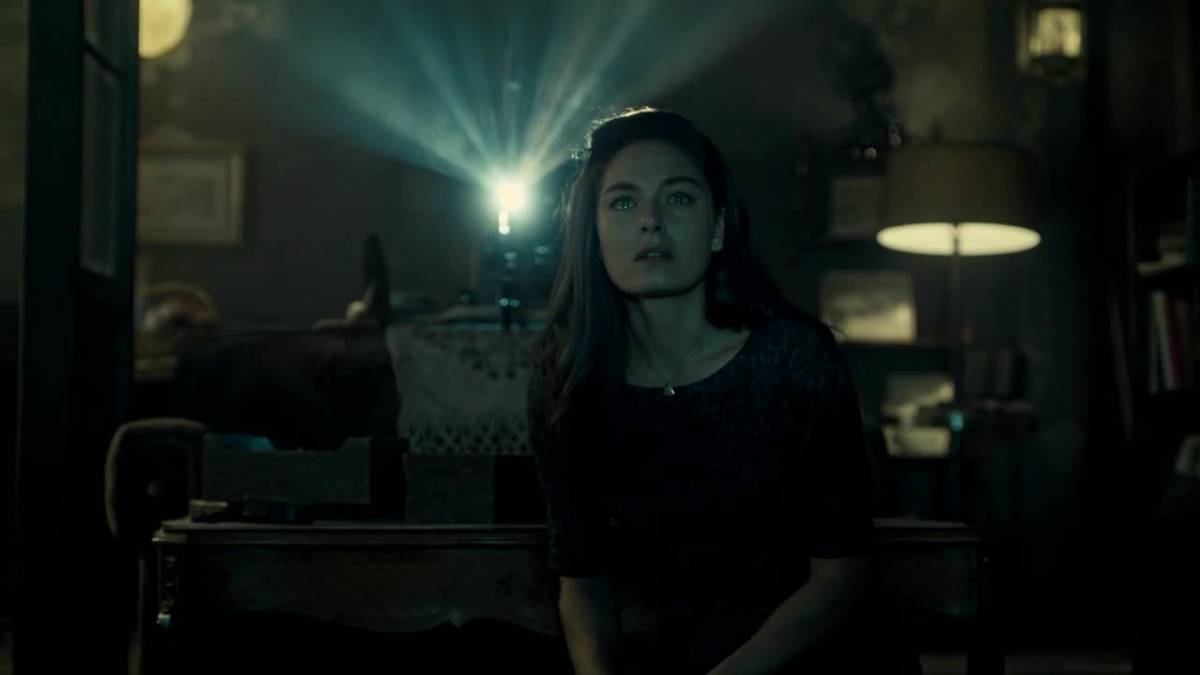
As one of Amazon’s pilots, The Man in the High Castle‘s first episode has been around for a while. Series’ are only made if their pilots prove popular. It’s a slow and sometimes frustrating approach the internet giant has taken in relation to their original television content, but this past weekend we finally reaped the rewards. The Man in the High Castle is here, and this is our first impressions review. Get stuck in.
The first thing you should know about Amazon’s prestige television offering is that it’s a show you’ll either love or leave. It’s not bad per say; it’s rather good in fact, if you like the ride and are happy to be along for it. The pacing here is slow and mournful, which seems to be deliberate.
If you’ve managed to avoid all the trailers and buzz around this one we’ll get you up to speed. The Man in the High Castle is a 1962 novel by Philip K. Dick, considered a classic of science fiction and a trailblazer in alternative history fiction. Specifically, Dick imagines a world where the Axis Powers of Nazi Germany and Imperial Japan win the Second World War.
It’s a terrifying prospect we’ve all likely contemplated briefly from time to time, and the greatest achievement of Amazon’s adaptation is its slavish devotion to making this alternate reality feel real and downright chilling. Great efforts have clearly been made to make the show’s dark timeline feel authentic. Small details, such as a Marx Brothers poster with the word “semites” scrawled over it, to big reveals like Times Square draped in swastika banners, it all adds to an oppressive and sombre mood.
The story centres on two protagonists. Joe Blake, from the Nazi controlled east side of America, and Juliana Crain, of the Japan occupied West coast, are drawn into a mysterious resistance movement. There are strange film reels which seem to show the allies winning the war. An urban legend says they were made by someone called the Man in the High Castle, but nobody knows who he is. Hitler, who we see briefly on a television news report, is now grey haired and frail but determined to put a stop to the subversive film reels.
Leading these repressive efforts is John Smith, a ruthless SS investigator played by Rufus Sewell. Sewell is an old hat at this sort of bad guy (see A Knights Tale, The Legend of Zorro) and does his job effectively. Elsewhere there’s geopolitics, with the slow reveal that once Hitler shuffles off the mortal coil the alliance between Japan and the Nazis might not be as secure as it at first appears.
It all combines to drag you into the world it has created. If you allow yourself to feel the strange sorrow that runs under the surface, you might easily become addicted to the show. These moments of sorrow are The Man in the High Castle‘s strongest sequences; the horrifying injustices faced by Juliana’s boyfriend Frank in the first two episodes are a perfect example.

scifinow.co.uk
If you find this slow, melancholy pace too ponderous though, you’ll probably feel like the whole thing is too much of a slog. Mood, tone and atmosphere can only do so much if you’re actually more interested in unravelling the mystery of the show. There’s a lot of set up in the first two episodes, but not a great deal of action. Juliana and Joe spend much of the time travelling to, and then moping about in, Cannon City – a town that sits snugly in the neutral zone between Japanese and Nazi America. The town will presumably become significant at some point, but for now there really isn’t much happening there.
The characters are at least interesting, with motivations that fit well into the story and its world. Juliana is living a happy life of blissful ignorance and gradual assimilation to Japanese culture until her sister shows up as a member of the resistance. The scene where Juliana watches one of the Man in the High Castle’s film reels is the best in the pilot, and actress Alexa Davalos sells the hell out of her character’s sudden internal awakening.
Joe Blake has his own motivations which we won’t spoil here, but by the end of the second episode it’s clear he’s going to be an interesting character. The stand out though, is probably Frank (played by Rupert Evans), who transforms from meekly hiding his Jewish heritage to outright threatening a Japanese intelligence officer by the end of episode two. He’s an artist, but his art is considered degenerate. His creativity is squashed at every turn and his life is turned upside down in a matter of days.
https://www.youtube.com/watch?v=0Ug4mVobL4s
If you’re still undecided, it’s probably worth clicking play on the first episode and listening to the theme music over the opening credits. It’s extraordinary how well the music conveys the mood of the show, and if it gives you chills you’re almost certainly going to like it. If not, you might have a harder time here, but there’s definitely something to it if you like alternative history stories.
Some of the coverage you find on Cultured Vultures contains affiliate links, which provide us with small commissions based on purchases made from visiting our site. We cover gaming news, movie reviews, wrestling and much more.



